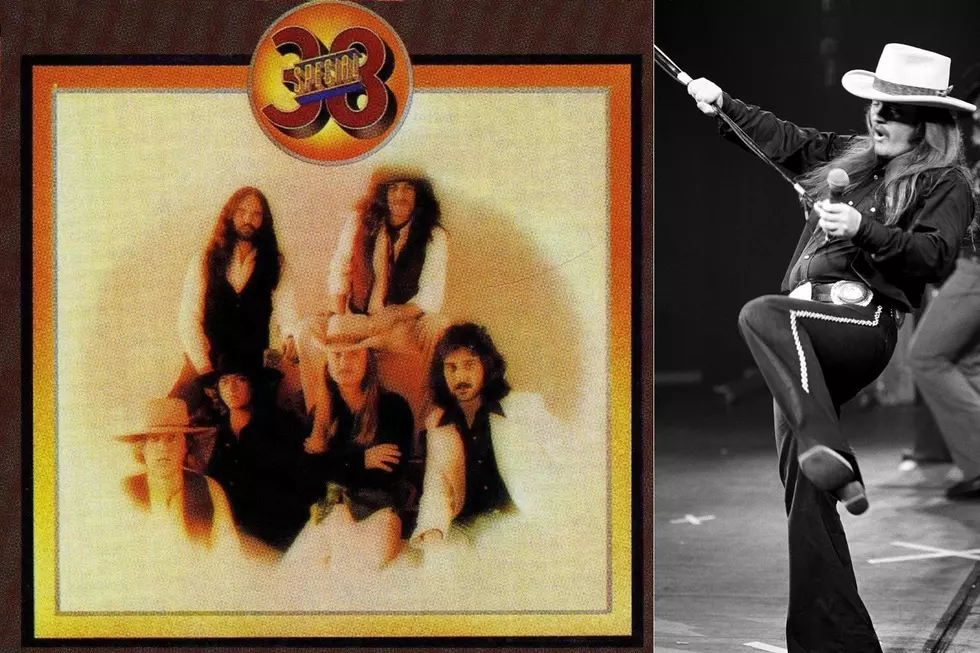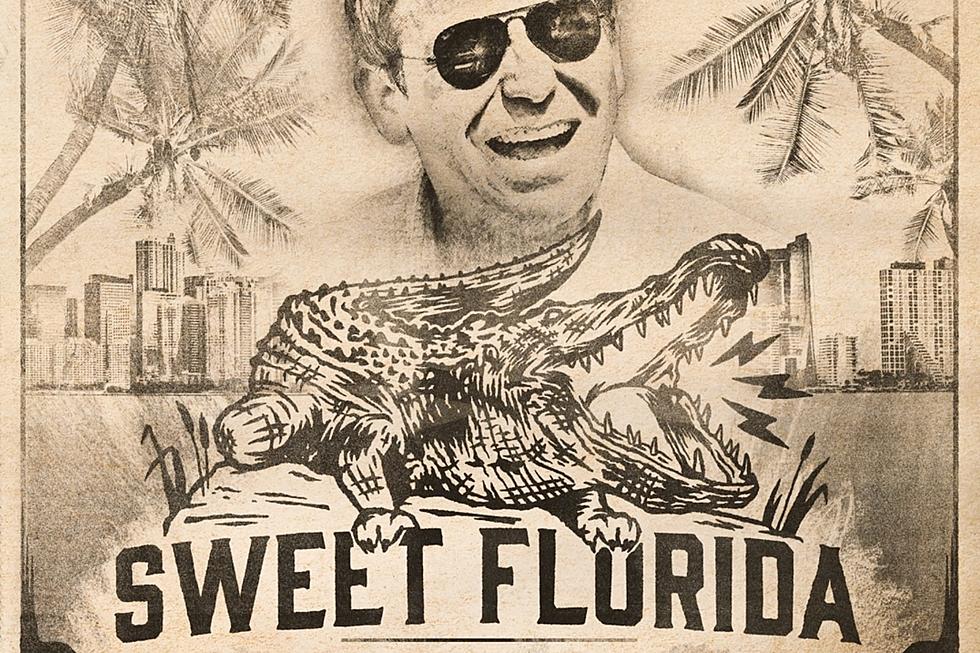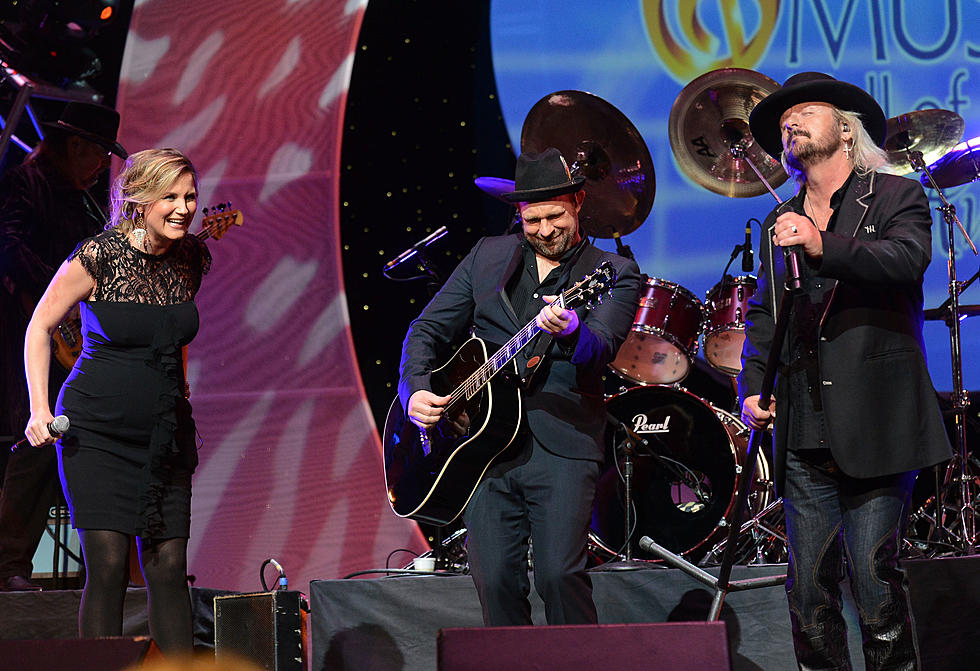
45 Years Ago: 38 Special Begin Journey Toward a New Sound
Every band has to start somewhere – and for 38 Special that was “over the cliff,” guitarist and vocalist Don Barnes quips. Still, the seeds for what the band would become were planted on their self-titled debut from May 1977.
The Jacksonville, Fla., group first came together in 1974 and they would eventually notch a total of nine Top 40 hits between 1981 and 1991, beginning with "Hold On Loosely." They had a long dry stretch, however, before landing on formula that added a radio-friendly polish to their Southern Rock roots.
“We started out and we were broke-ass local guys with day jobs,” Barnes says with a laugh, during a recent conversation with UCR. “Donnie Van Zant and I did about eight local bands before this.” At one point Van Zant, brother of Lynyrd Skynyrd’s Ronnie Van Zant, was close to hanging it up. He had a job offer from the railroad that meant working a regular 9-to-5 and abandoning his music dreams.
As Barnes recalls, his bandmate wasn’t quite ready to let go. “I got real despondent about the whole thing,” Barnes remembers now. “But [Van Zant] said, ‘Let’s try it one more time.’ I said, ‘Alright.’ He said, ‘We’ll find the right people that will show up and be serious.’”
Guitarist Jeff Carlisi had played with Van Zant in a high school band, Sweet Rooster, before going away to college and graduating with a degree in architecture. He discovered his chosen trade was experiencing a lag in demand. With interest rates climbing in 1974, new construction had stalled out and there was a dearth of work for architects as a result.
He joined up with Barnes and Van Zant in their new venture, but had no delusions of grandeur. “I moved back to Jacksonville and said, ‘Yeah, this will be a lot of fun for a couple of years. I’ll have a little sabbatical here, [then] I'll go back to the real world and be the next Frank Lloyd Wright,’” Carlisi remembers in a separate conversation. “But the rest is history. I just stayed with it and believed in it.”
The initial lineup of 38 Special was rounded out with bassist Ken Lyons as well as drummers Steve Brookins and Jack Grondin. Carlisi says they liked them both and it didn’t seem weird, since the Allman Brothers Band, Lynyrd Skynyrd and others had all had two drummers. (Brookins and Lyons were transplanted from Van Zant’s Sweet Rooster days.) They started to play heavily in clubs in front of audiences who were completely indifferent, as Barnes remembers – and that proved to be beneficial.
Listen to 'Long Time Gone' by 38 Special
The band was able to crib “obscure songs off of B-sides” and other records people “hadn’t heard,” initially in hopes that those in attendance would think they were originals. But the covers ended up providing inspiration for their own songs. “[Playing stuff] from ZZ Top or something, if we didn’t like the middle part, we would start creating this long lengthened song in the middle and create our own little thing,” Barnes says. “We had passages in things that went on for eight to 10 minutes, just to kill time. But a few of our own songs, the ones that made it on that first album, we had them in the clubs.”
Carlisi says the magic of 38 Special is that their songs were true collaborations. He recalls bringing an acoustic guitar and playing ideas as Van Zant was painting houses for his day job at the time. “He’d start singing and developing an idea and then we’d bring it into rehearsal,” Carlisi says.
This approach proved to be an important part of 38 Special’s creative process. “It was what was so much fun, really, for most of our career through the first I would say, five records,” Carlisi says. “When somebody came in with an idea, you didn't bring in a tape, you didn't bring in a demo, you just brought the idea in. And maybe lyrically, it was halfway done or melodically it was done, but the whole band started playing it and gave the song its identity – the band stamp.”
Dan Hartman was tapped by the band’s label, A&M Records, to produce the album. Carlisi calls his contributions “invaluable,” noting that they had been fans of Hartman's prior work with Edgar Winter. “He was one of the best musicians I’d ever worked with and could play any instrument,” Carlisi says. “He was just fun to be around.”
He took them to “the Edgar Winter school” of recording, as Carlisi calls it. “It was a school of perfection,” he adds. “There was a certain quality I think we were missing that we learned later on working with Rodney Mills. You know, [Rodney later taught us] how you forsake a little bit of perfection for the feel, the groove and the attitude, but it was a really good education to start with … and Dan had some very good ideas.”
Ronnie Van Zant and Lynyrd Skynyrd were also a huge influence on the members of 38 Special. Van Zant was particularly supportive, offering guidance to the developing band. He also stepped in at a crucial point when the young guitarist’s amp blew up, co-signing on the purchase of a new one.
He would help them secure management and get them out on the road to start touring, but he also was direct with his advice on what not to do. “Don’t try to be a clone of what’s been happening before,” which Barnes says was key. “Because we were copying everybody, you know, because that’s what young bands do.” He points to the 38 Special album as evidence, calling it “kind of country” compared to what would follow with their subsequent output.
Listen to 'Four Wheels' by 38 Special
“Four Wheels” points to the more refined approach 38 Special would take in the future, with melodic moments that echo the group’s “Wild-Eyed Southern Boys” from a few albums later.
Ultimately, Barnes is grateful for the path they took and how things worked out, despite the odds. “We were trying to find [our sound], moving around in different styles and just trying to survive,” he says now. “We were really green at the time and we were probably a little too green to have a record deal, but we were trying to make the most of it. We only had a two-album deal and the two albums that we did, well, they failed.”
A&M might have dropped them, but instead 38 Special got a second shot. “Somewhere in a boardroom, after Donnie had lost his brother – and what a tragedy that was – they [probably] didn’t have the heart to drop us,” Barnes says. “Whoever that was saved us and it was a pivotal time for us, because it made us gut up [knowing] it was really going to be over. So, you really go after it.”
Barnes said 38 Special “realized we had to change everything. Donnie made the suggestion, ‘Why don’t you sing a few songs?’ You know, all of those things. We tried everything different. It turns out that Donnie had more of an earthy, bluesy voice and I had the melodic radio-friendly voice. But it was never a competition with Donnie and I. We felt like it didn’t matter who carried the ball as long as you won as a team.”
Next, they decided to do a little research. “We took the blinders off and started listening to a lot of other bands that were having some success and not necessarily Southern bands,” Carlisi says. They hit on “Just What I Needed” by the Cars, and “all of the sudden, those eighth notes – wow, okay. Then that’s seeping into your fingers,” he adds. “The next thing you know, we’re writing a riff that ends up being ‘Hold On Loosely,’ that’s based on the same time signature.”
The process of “taking off the musical blinders, if you will, I think was the most important thing we ever did,” Carlisi concludes. “That new sensibility of direction, combined with the spirit of the way we played and the Southern attitude, created something that was a fresh Southern movement.”






